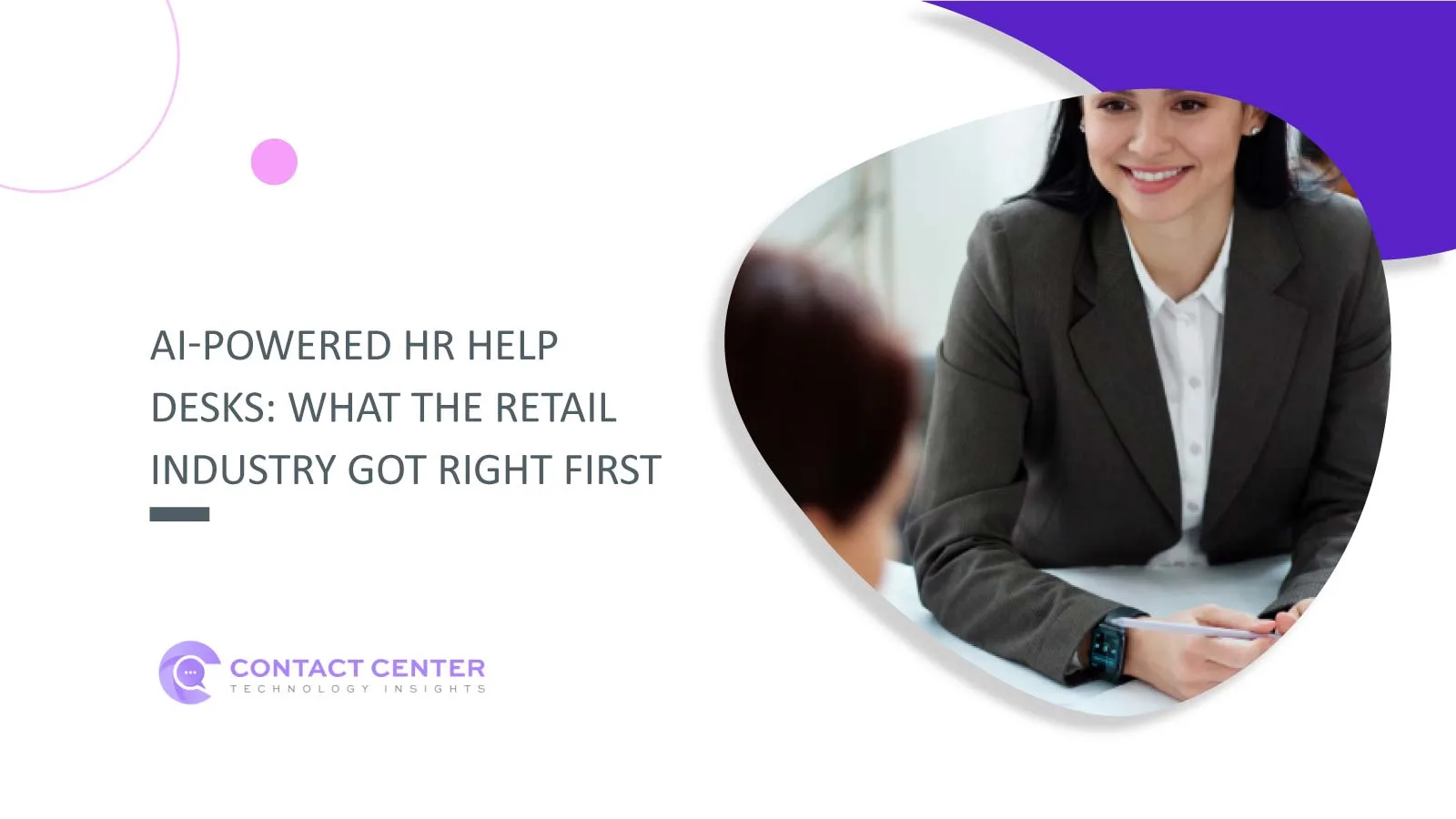Imagine that it's the shopping season, malls are crowded, and front-line workers are dealing with customer inquiries, technology issues, and extended hours. Now picture one of them tapping on a tiny app on their phone and getting instant assistance, whether it's how to reboot the register, request time off, or decipher their benefits.
That's not the future. That's already present in the world of retail. And it's giving the rest of us in HR technology a mighty lesson: Retail didn't wait for AI help desks to become cool. They constructed them when they needed them the most.
While a lot of industries are still experimenting with pilot programs, big retailers have already deployed AI-driven HR assistance at scale, on the ground, and with real impact. How did retail move so quickly? And what can HR leaders across other industries learn from their strategy? Let's find out.
Why Retail Moved Fast And Why That Matters
Retail can't afford slow processes. Schedules change quickly in-store requirements, seasonal needs, and employee turnover. Old-school HR just couldn't keep pace. That was the catalyst that forced the industry to search for solutions that could provide speedy results, automate mundane tasks, and remain human.
A 2023 Gartner report discovered that more than 40% of larger companies had adopted AI in some portion of HR, with retail taking the top spot in real-world application. Retail didn't merely make the adoption. They made it functional.
What Retail Got Right First
AI-powered HR help desks have already been used by some of the largest retail brands in ways that are both useful and significant. Here are some notable instances of how these tools are helping workers and allowing HR departments to concentrate on the important things.
1. They Automated the Easy Stuff Smartly
Retailers did not attempt to replace HR. They simply realized HR teams were inundated with routine questions, such as "How do I ask for PTO?" or "When do my benefits take effect?" so they delegated those to AI assistants.
Consider Walmart's in-house chatbot "Ask Sam." It responds to thousands of employee queries each day, allowing HR reps to devote more time to higher-priority tasks.
2. They Made It Personal
Retail brands didn't deploy generic bots. They constructed help desks that drew on employee information, role, location, and shift times so answers made sense in context.
That's important. A Deloitte study discovered that 56% of employees feel disengaged when HR responses are generic. So retail ensured AI didn't feel robotic; it felt relevant.
3. They Treated AI Like a Learner
Neither did retailers simply "set and forget" their bots. They provided them with immediate feedback and revised them in response to the questions employees asked.
Target's Store Companion, an AI chatbot that's deployed across more than 2,000 stores, becomes smarter each day by learning from interactions with team members. It now assists with everything from technical support to training advice, and it's getting acclaim from employees.
4. They Put It in Their Pockets
Store workers aren't usually sitting at a desk. So, retailers ensured their AI tools were developed for mobile text-based, simple to access, and lightning quick.
Home Depot's HR chatbot on their employees' phones allows them to schedule leave, ask shift questions, and even view benefits all through their mobile devices. That's a huge advantage for deskless teams who simply need assistance that fits into their schedule.
5. They Kept It Human Where It Counts
Retailers didn't automate HR reps out of a job; they designed systems where AI gets to the easy parts, and actual humans jump in when it's human or difficult. That kind of handoff ensures employees feel heard and respected, not just “routed.”
What the Rest of Us Can Learn
If you’re in HR or building solutions for HR, this isn’t just a cool case study. It’s a roadmap. AI-powered help desks are more than a tech trend. When done right, they deliver serious ROI:
More significantly, employees adore it. When HR support is prompt, individualized, and convenient, engagement increases.
Win in Real Life: The Story Behind the Numbers
Let's examine a notable instance where artificial intelligence is indeed having an impact.
Target's "Store Companion"
Introduced throughout the chain in 2024, this AI assistant assists team members in restarting registers, locating product information, and even responding to HR questions. And it's powered by Google Cloud's AI stack for scale.
Staff refer to it as "a game changer" during busy shifts. HR teams have more time focused on culture-building rather than call queues.
What Comes Next: HR Help Desks as Everyday Tools
Here's the reality: workers want the same quality of support at work as they receive from Amazon or Spotify. The bar is set higher now. And the retail sector didn't merely reach it, they helped raise it. For CHROs and HR technology leaders, this is the time to transform.
AI-assisted help desks aren't about expense reduction. They're about reaching people where they are, valuing their time, and empowering HR teams to do strategy, not scripts.
Encouraging the Future of Healthcare
AI-powered contact centers are a force for change in healthcare operations, not just a technical advancement. They optimize procedures behind the scenes and enable providers to provide prompt, individualized care by improving communication. A new benchmark for patient experience and operational performance is being set by this fusion of creativity and compassion.
Adopting AI-driven communication solutions will be crucial for leaders who wish to stay ahead of the curve as healthcare continues to change. Making genuine relationships that promote better outcomes and stronger communities is more important than efficiency alone. AI contact centers are setting the standard for the future of healthcare, which begins with every interaction.
Intent Amplify® fuels growth for CX and contact center tech companies through content-led demand generation and AI-powered ABM.
